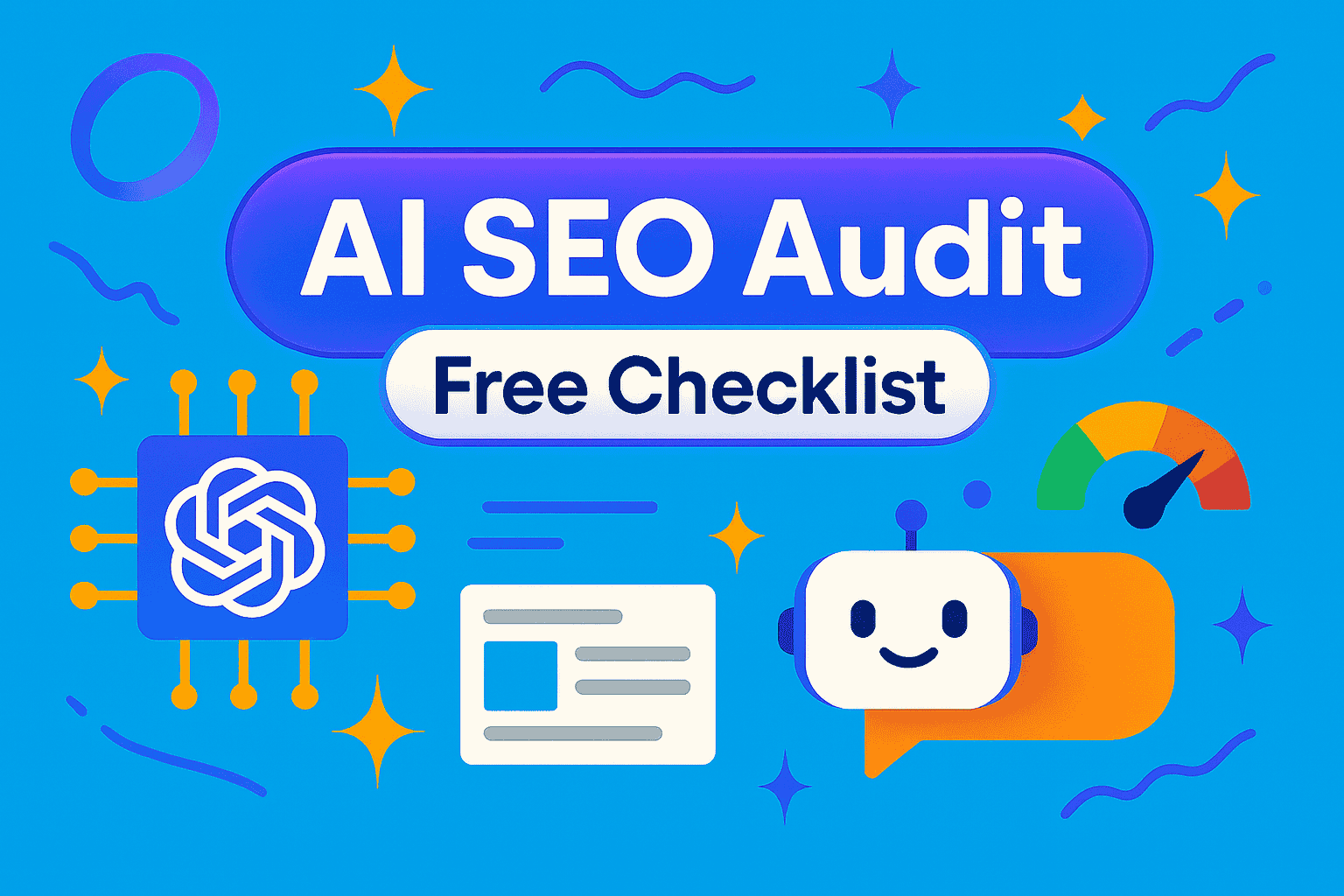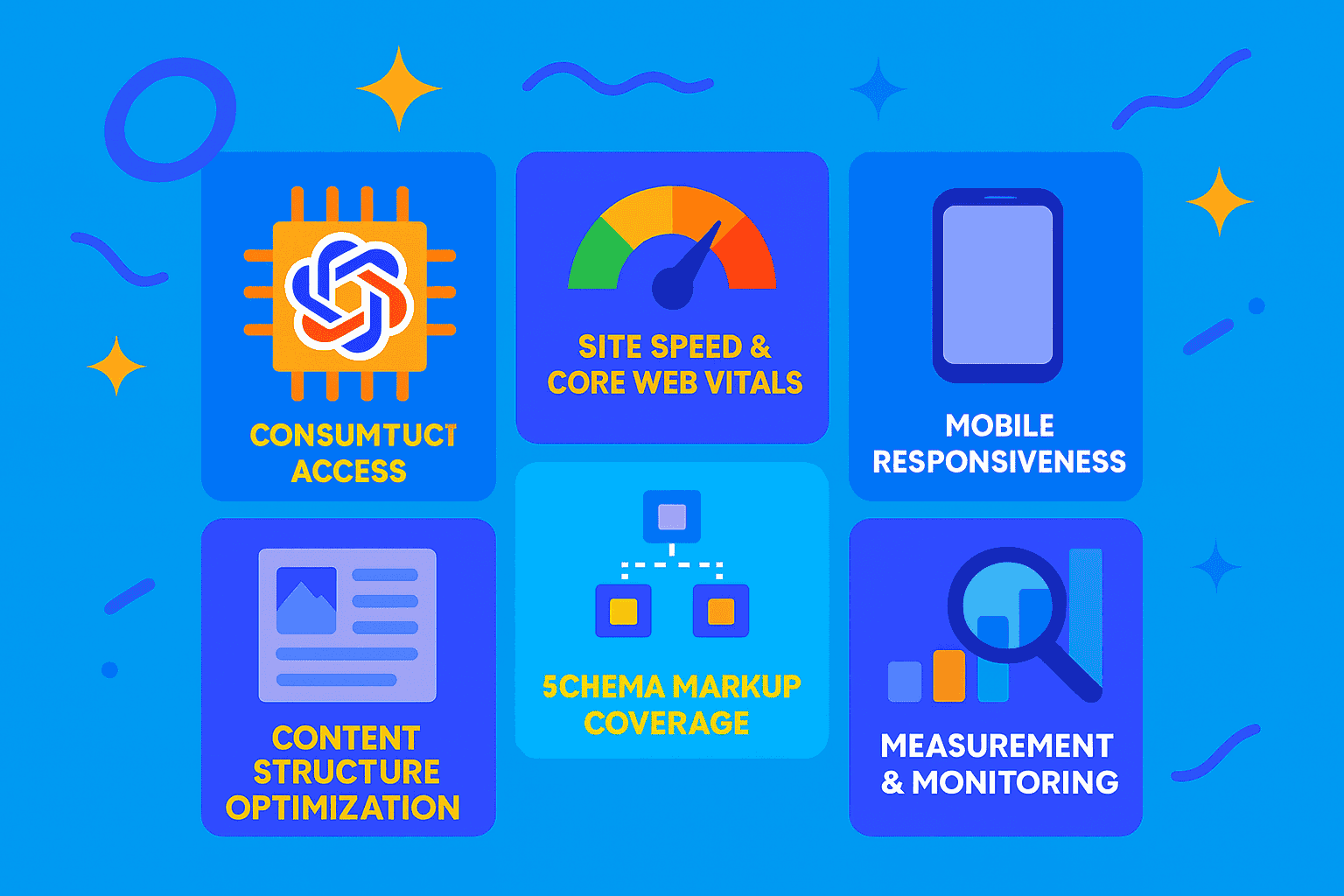Frequently Asked Questions (FAQs)
What's the difference between SEO and AI search optimization?
SEO optimizes for ranking, AI search optimizes for citation. Traditional SEO focuses on keyword rankings and website traffic. AI search optimization focuses on being referenced and recommended within AI responses. Technical differences include: Content must answer questions directly (not keyword-stuff), and success metrics shift from rankings to brand mention frequency. Both remain important—AI search builds on strong SEO foundations.
What is included in the AI SEO/AEO Audit Checklist?
An AI Search or Answer Engine Optimization audit examines how well your content performs across AI search platforms like ChatGPT, Claude, and Perplexity. Our comprehensive audit covers:
• AI Crawler Access: Ensuring AI bots can access and index your content
• Schema Markup Analysis: Product, FAQ, and Review structured data optimization
• Content Structure Review: Answer-first formatting, conversational optimization
• Brand Visibility Assessment: How often AI platforms mention your brand
• Competitor AI Analysis: Comparing your AI search presence to competitors
• Technical AI SEO: Site speed, mobile optimization, and LLMs.txt implementation
How do I perform an AEO audit?
Our step-by-step guide walks you through the complete process:
• Technical Foundation - Check robots.txt, implement LLMs.txt, validate schema markup
• Content Analysis - Audit existing content for AI-friendly formatting
• AI Visibility Testing - Manual testing across ChatGPT, Claude, Perplexity
• Competitor Research - Analyze how competitors appear in AI search results
• Implementation Planning - Prioritize optimizations by impact and effort
• Monitoring Setup - Establish ongoing AI search performance tracking
How much time do I have before competitors dominate AI search?
The competitive window is closing rapidly. Early research shows that brands establishing authority in AI responses within the next 12-18 months may gain positions that become increasingly difficult to replicate. 91% of CMOs have been asked about AI search visibility, but only 35% have dedicated strategies. The next 12 months are critical, similar to how early Google SEO adopters in the 2000s gained lasting advantages.
What's the biggest risk of not investing in AI search optimization now?
Brand invisibility in the newest and fastest growing discovery mechanism. With 58.5% of searches ending without clicks, customers are getting answers directly from AI without visiting websites. If competitors optimize first, they become the "default recommendation" when customers ask AI about your product category. BrightEdge data shows brands mentioned in AI responses see 300%+ increases in brand recognition, while absent brands experience discovery decline.
How will AI search impact our current marketing attribution model?
AI search changes traditional attribution entirely. When AI answers customer questions without sending them to your website, last-click and multi-touch attribution become obsolete. New metrics focus on influence rather than traffic: brand mention frequency, sentiment in AI responses, and share of voice across AI platforms. Leading CMOs, marketers & SEO specialists are piloting "citation-based attribution" that tracks brand influence in the customer decision process even without direct website visits.
How do I measure success in AI search optimization?
Focus on three core KPIs:
• Brand Visibility Score (percentage of relevant AI queries where your brand appears)
• Share of Voice (your mentions vs. competitors in AI responses)
• Sentiment Analysis (positive/negative tone when AI discusses your brand)
Advanced metrics include citation frequency, source diversity, and competitive gap analysis. Avoid vanity metrics like AI "rankings"—focus on customer decision influence.
Do I need to completely change our content strategy for AI search?
No, evolve rather than revolutionize. Successful AI optimization builds on existing SEO foundations while adding AI-specific elements: FAQ schema markup, question-based content headers, and direct answer formatting. The 80/20 rule applies: 80% of AI visibility comes from optimizing existing content for AI consumption, 20% requires net-new AI-specific content creation.
What tools do I need to improve & monitor AI search performance?
• GA4 (Still most reliable to understand the AI referral traffic from AI Search engines)
• AI Visibility Monitoring (Profound, BrightEdge AI Catalyst, SEMrush AI Toolkit)
• N7 SERA-GPT (Accelerating crawling by AI Bots and making sure you are fed into the AI-Recommendation tools faster)


